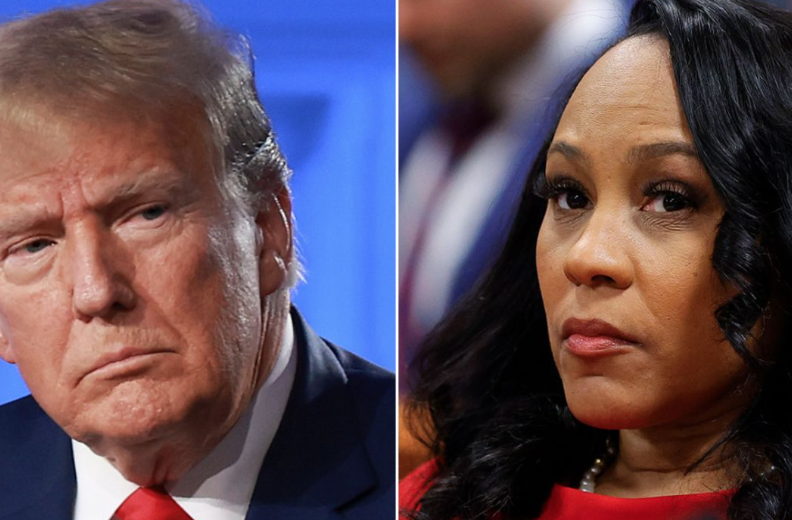Judge Makes Game-Changing Decision In Trump Case

A Georgian court has scheduled a hearing for Monday to consider the dismissal of the case against former President Donald Trump in Fulton County, arguing on the basis of free speech rights.
The hearing, set by Fulton County Superior Court Judge Scott McAfee for March 28, will see Trump and several other defendants, indicted by District Attorney Fani Willis, make their case for dismissal.
Previous attempts by Trump's co-defendants, Sidney Powell and Kenneth Chesebro, to leverage free speech defenses were not successful, with McAfee rejecting such arguments. Both Powell and Chesebro have since pleaded guilty.
Reports from the Atlanta Journal-Constitution and Raw Story indicate that for Trump to effectively use a First Amendment defense, he would likely need to concede that his allegations regarding the 2020 election being fraudulently manipulated were not true.
Trump's legal representation, led by attorney Steve Sadow, has argued that the charges against Trump are based on constitutionally protected political speech and actions.
Sadow also countered that the response to incorrect speech should be truthful speech, not a racketeering charge against a former U.S. President.
In recent developments, District Attorney Fani Willis, who has been at the forefront of the case against Trump and 14 co-defendants, made headlines with her statement that a "train is coming," signaling a steadfast continuation of the prosecution. This comes amidst challenges to her position due to a disclosed romantic relationship with a lead prosecutor previously involved in the case. Despite these distractions, Willis maintains that her office's work has not been impeded.
At a local Easter event in Atlanta, Willis expressed confidence in the ongoing case, emphasizing the uninterrupted pace of their efforts despite attempts to slow them down. Furthermore, in discussions with CNN, Willis addressed the scrutiny over her personal relationship with former special prosecutor Nathan Wade, stating she has done nothing illegal or shameful.
Critiques of Willis' public comments have emerged, with Atlanta defense attorney Andrew Fleischman and Georgia State University law professor Clark Cunningham questioning the appropriateness of such remarks. They argue that these comments could undermine the trial's perceived integrity and suggest political motivations rather than a focus on legal accountability.
This encapsulation aims to mirror the original article's comprehensive coverage of the upcoming court hearing, the free speech defense, and the surrounding controversies involving District Attorney Fani Willis and the case against former President Donald Trump.